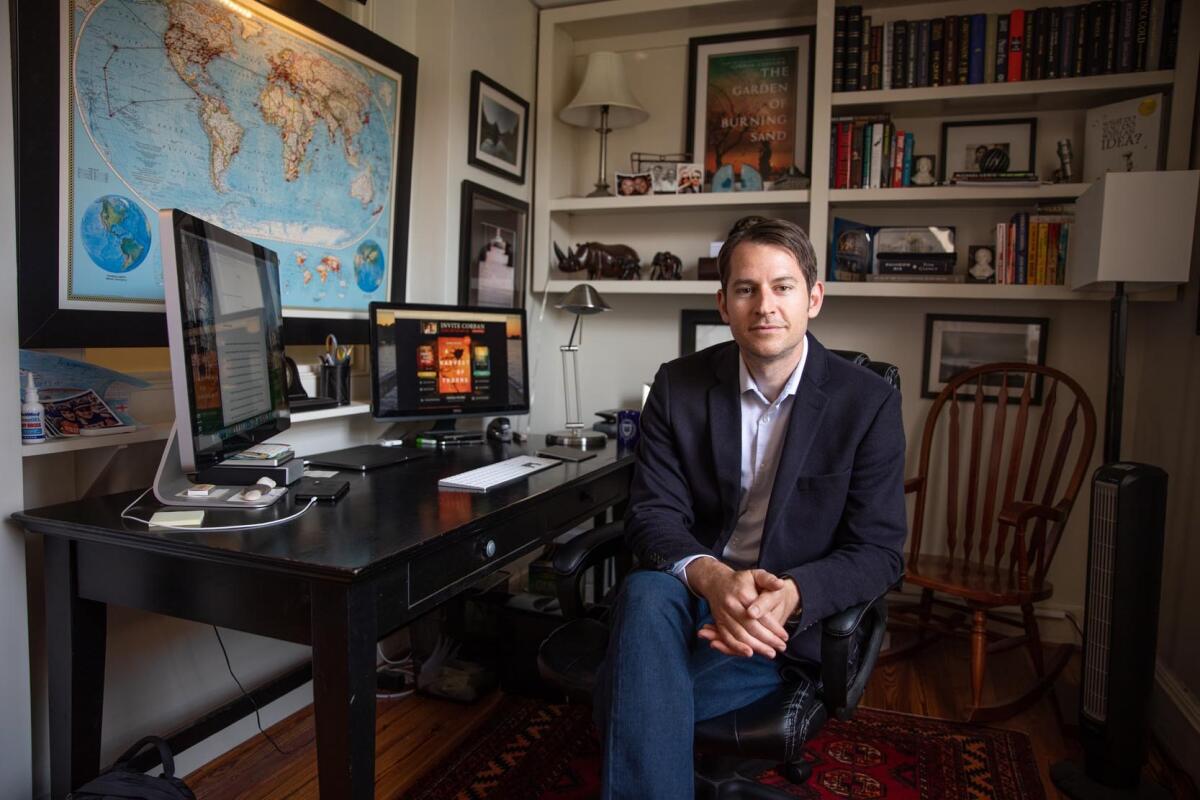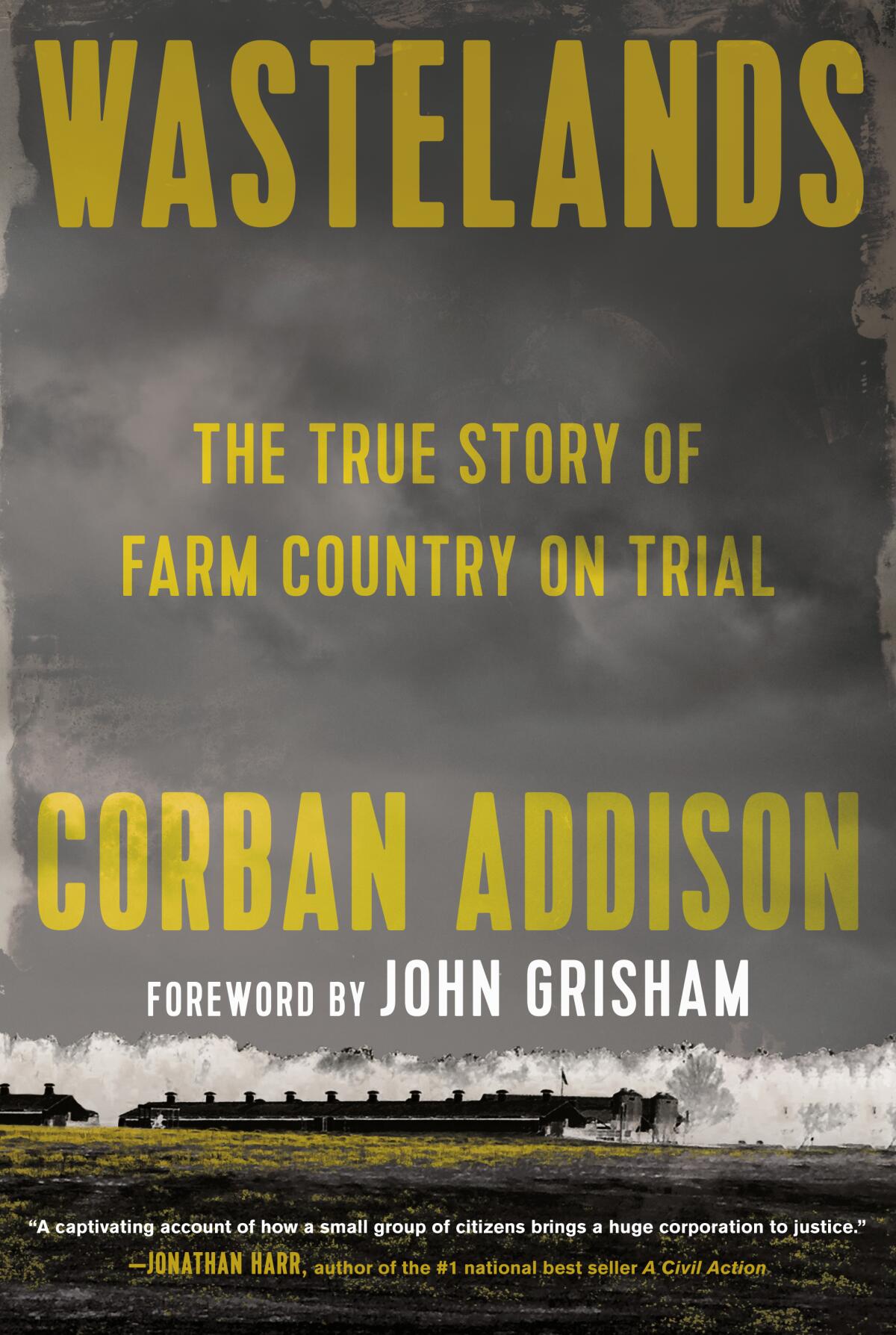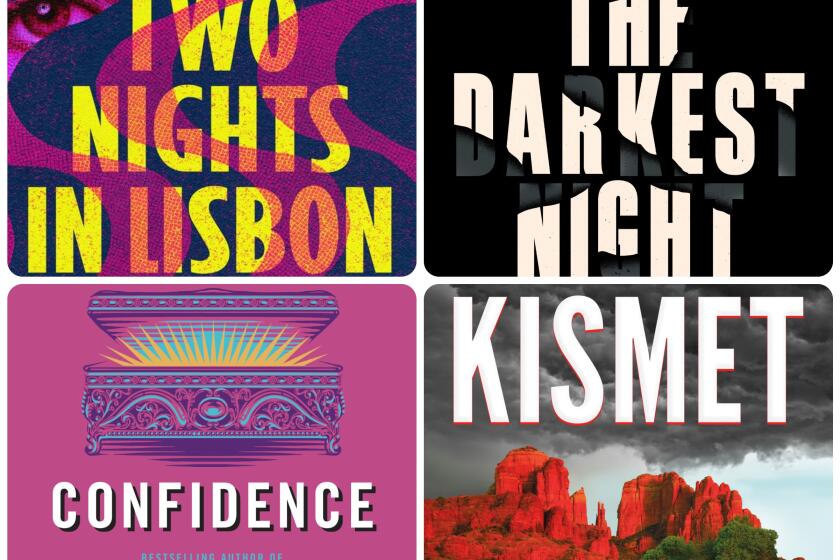How a rural victory over pig poop struck a blow against polluters everywhere

- Share via
On the Shelf
Wastelands: The True Story of Farm Country on Trial
By Corban Addison
Knopf: 464 pages, $30
If you buy books linked on our site, The Times may earn a commission from Bookshop.org, whose fees support independent bookstores.
In contemporary terms, the word “nuisance” signifies an annoyance or a bother. Being woken by the neighbors’ crying baby through your bedroom wall, say, or persistent spam calls insisting that your car warranty is outdated. But the original meaning of “nuisance,” according to Merriam-Webster, is “harm” or “injury.” A truly injurious nuisance is at the heart of novelist Corban Addison’s first nonfiction endeavor, “Wastelands: The True Story of Farm Country on Trial.” It might seem an odd, perhaps even trivial subject to span a 400-page book, let alone seven years of dramatic litigation involving one of the world’s wealthiest and most powerful industries. That is, the nuisance of hog feces.
The cause of the nuisance is Smithfield, a pork producer that runs an industrial hog complex in eastern North Carolina whose massive farms are ringed by fetid waste lagoons, left to simmer in the open air, sometimes only yards from neighbors’ property lines. In many instances, the waste is sprayed into the air to “fertilize” surrounding fields, some of it ending up instead on people’s porches, in their laundry and on their kitchen counters.
“Wastelands” follows the story of an indefatigable legal team, Wallace & Graham, and its endeavor to seek justice for the plaintiffs who had, for nearly 50 years, endured the unpredictable tyranny of the pork industry’s byproduct.
One of Addison’s many challenges in portraying the seriousness of such an unusual nuisance lay in his ability to describe something as ineffable as a nasty scent.
From Portugal, Spain and Scotland to Sedona, Ariz. The summer’s most anticipated thrillers will satisfy your wanderlust no matter your plans.
“It’s one thing to listen to a story. It’s another thing to live it,” writes Addison. “Empathy can offer you a simulation of human experience. But it can’t give you the feel of falling when you dive off a waterfall or the flicker of butterfly wings in your stomach when you fall in love … neither can it conjure in your nose the peerless putrescence of hog s— wafting through the air.”
Over a Zoom one May afternoon, I asked Addison about how he approached the task. From an Airbnb in Cleveland where he was stationed to research his next project (centered on the opioid crisis), he described traveling to the developing world for novel research. He was often confronted with the scents of open sewage and industrial waste, as recounted in his human-rights-focused fiction. “Landing in the Mumbai airport, I could smell the burning rubber seeping through the cracks of the airplane,” he said.

But when he landed in Duplin County, N.C., seeking the experience the entire book was predicated upon, he initially played devil’s advocate, asking himself, “Is this as bad as they’re making out?” Driving around with a consultant on the case, he came upon a farmer spraying, got out of the car and immediately understood. He also considered that what he was experiencing, though horrifying, was perhaps an edited version of what the plaintiffs had smelled. Not only was it post-lawsuit, with some mitigation efforts in place, but it also was, for him, temporary; his getaway car was right there. The plaintiffs, on the other hand, conducted their lives on front porches and in their yards “without air conditioning, under the Carolina blue sky,” and many had been fighting the degradation for a generation.
In the end, the Wallace-Graham team — filled with charismatic, colorful characters — won, and the plaintiffs — lovingly and sincerely wrought — were awarded millions of dollars in damages from Smithfield, along with the promise of structural changes. They had successfully established that the nuisance was more than nostril-deep. It was about the systematic negligence of an American industry and the consequences of a poorly managed money grab foisted on a vulnerable community.
It was the story of so many manmade environmental disasters across the country — from the water crises in Flint, Mich., and Jackson, Miss., to the levee collapse after Katrina in New Orleans — and of their mostly Black victims. In North Carolina, their land had been handed down from freed ancestors only to be ravaged by the powers that be.
These kinds of stories have preoccupied Addison since he began writing as a young attorney practicing general street law. He’s written four deeply researched novels, all of which revolve around human rights: sex trafficking in India, piracy in Somalia, labor exploitation in Bangladesh and corruption in Zambia.
Katie Gutierrez discusses our true-crime obsession, representation in thrillers and other ideas that fed into her debut, ‘More Than You’ll Ever Know.’
“People had been telling me for years to try my hand at nonfiction. I had a number of agents say, ‘Why don’t you just write a real story, a true story?’” he said. The trouble was finding a subject that could bear the weight of a book. “I have to make a living, and my journalist friends tell me it takes a lot of drilling dry holes before you find a story worthy of a book,” he added.
The opportunity came when a friend, thriller author John Hart, put Addison in touch with Mona Wallace, the Smithfield case’s lead lawyer. They connected immediately, and Addison flew to North Carolina at the start of the fifth and final trial, where he dug in and began documenting.
One of the more obvious challenges of writing a book like “Wastelands” is the need to explain litigation clearly without boring the reader to tears. The book manages that feat by drawing on Addison’s fiction chops; it reads like a wholesome, old-fashioned legal thriller in the school of Jonathan Harr’s “A Civil Action” or D. Graham Burnett’s “A Trial by Jury.” As a former lawyer, Addison can cut through legalese while foregrounding textured descriptions and deftly employing character tropes.
“I sometimes wondered if I was painting with too glossy a brush,” Addison admitted when considering his subjects — the swashbuckling litigator Mike Kaeske, the saintly plaintiff Joyce Messick, the evil, conniving hog barons. But in the end, he says, his portrayals were simply true to life. John Grisham, who wrote the foreword to “Wastelands,” confesses that he wishes he could have written about the case himself.
Of course, the satisfaction of a book like “Wastelands” lies in a truly rare kind of redemption. Goliath is slain. The good guys win. And Addison has the pleasure of being the verdict’s messenger.
In 2019, journalist Ben Raines helped find the Clotilda. He discusses his book, “The Last Slave Ship,” and the triumph and tragedy of its descendants.
Pariseau is a writer and editor in New Orleans.
More to Read
Sign up for our Book Club newsletter
Get the latest news, events and more from the Los Angeles Times Book Club, and help us get L.A. reading and talking.
You may occasionally receive promotional content from the Los Angeles Times.










